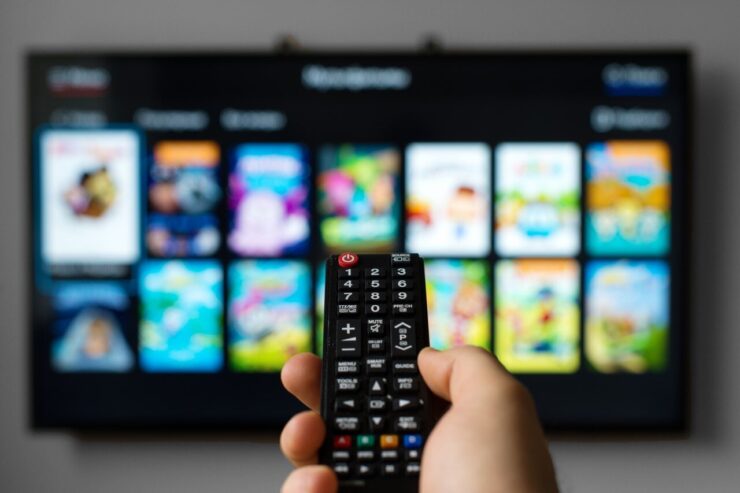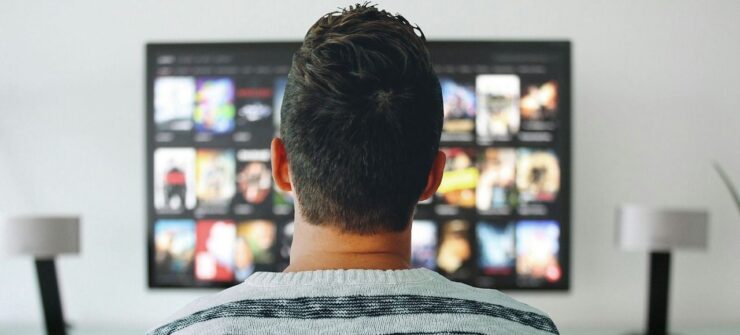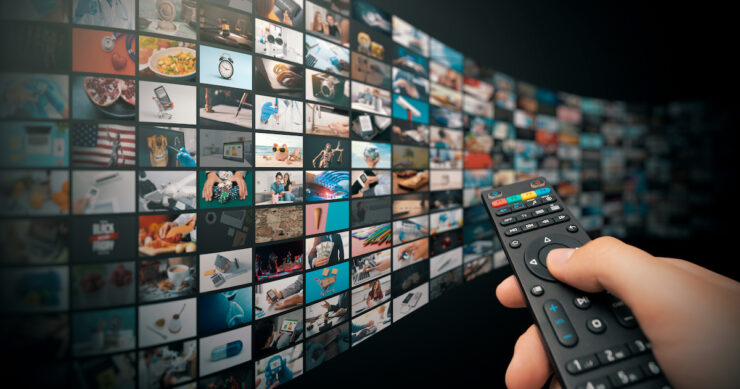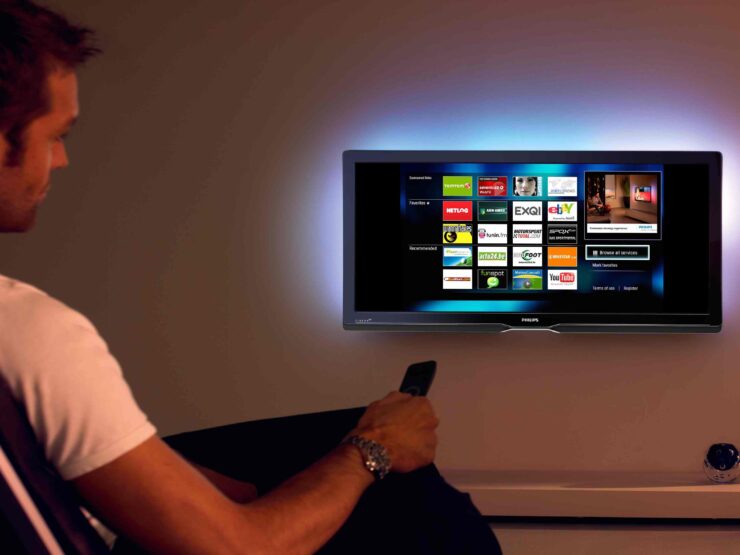Table of Contents
The way people consume television is changing. Internet TV has emerged as a leading force in entertainment, offering flexibility, customization, and cost-effective alternatives to traditional cable services.
As more households transition to internet-based platforms, traditional cable is rapidly losing relevance. Understanding the factors behind this shift sheds light on why internet TV is shaping the future of home entertainment.
What is IPTV?

IPTV refers to services that deliver television content through broadband connections rather than traditional coaxial or satellite infrastructure.
These platforms provide a mix of live channels, on-demand programming, and exclusive content. You will enjoy the best experience if you choose a well-known and reliable platform like Nordic IPTV.
Key Features
- On-Demand Libraries: Massive catalogs of movies, shows, and documentaries available anytime.
- Live Broadcasting: Real-time access to sports, news, and other events.
- Multi-Device Compatibility: Streams on smart TVs, smartphones, tablets, and computers.
- Customizable Viewing Options: Users can tailor subscriptions to include only the content they want.
This innovative approach to television consumption offers a more personalized experience compared to cable.
Why Traditional Cable is Struggling
Cable, once the standard for home entertainment, is now facing challenges as consumers shift toward IPTV platforms. Several factors contribute to this decline.
Rising Costs of Cable
Cable subscriptions often come with high monthly fees, averaging over $100 for basic packages. Additional charges for premium channels, DVRs, and installation services inflate these costs further.
- No Hidden Fees: IPTV avoids equipment rentals and regional surcharges.
- Pay-As-You-Go: Month-to-month subscriptions eliminate the need for long-term contracts.
Lack of Flexibility
Cable services bundle dozens of channels, many of which go unwatched. This lack of customization frustrates consumers who want more control over their programming. Internet TV solves this problem by allowing users to select specific plans or add-ons based on their viewing habits.
Outdated Technology
The reliance on physical infrastructure, such as set-top boxes and coaxial cables, makes cable less adaptable to modern viewing trends. Internet TV uses cloud-based technology and apps, which are easier to update and integrate with other devices.
The Advantages

The rise of IPTV is not just about affordability; it offers an enhanced viewing experience that traditional cable cannot match.
Personalized Viewing
IPTV platforms use advanced algorithms to recommend content based on user preferences. This personalization ensures that viewers spend less time searching and more time enjoying their favorite shows and movies.
- Tailored Recommendations: Suggests content aligned with individual tastes.
- Custom Profiles: Each household member can have their own profile with unique preferences.
Multi-Device Access
IPTV enables users to stream content on various devices, providing entertainment on-the-go. This feature is especially valuable for families with diverse viewing needs.
- Portability: Watch from anywhere with an internet connection.
- Simultaneous Streams: Support for multiple users within the same account.
Expansive Content Libraries
Unlike cable, which is limited by bandwidth and regional availability, IPTV offers vast content libraries that include international programming, niche genres, and exclusive shows.
- Global Content: Access to series and films from around the world.
- Exclusive Originals: High-quality productions unavailable on traditional TV.
Superior Video Quality
Streaming platforms often deliver content in high-definition or 4K resolution, providing a more immersive viewing experience than the standard-definition broadcasts common with cable.
Challenges

While IPTV has many advantages, it is not without challenges. Potential users should consider these factors before making the switch.
Dependence on Speed
Streaming relies entirely on a stable connection. Slow speeds or interruptions can disrupt the viewing.
- Recommended Speeds: At least 15 Mbps for HD streaming and 25 Mbps for 4K content.
- Data Caps: Heavy streaming may exceed data limits for some plans.
Fragmented Content
With multiple platforms offering exclusive programming, users may need to subscribe to several services to access all desired content. This fragmentation can reduce the cost advantage.
- Subscription Overload: Managing multiple accounts can become tedious.
- Limited Local Channels: Regional programming may require additional services or apps.
Security and Privacy Risks
Using multiple online platforms increases exposure to cybersecurity threats. Ensuring secure logins and avoiding unlicensed services is essential to protect user data.
Why Consumers Are Cutting the Cord
The trend of cord-cutting—canceling cable subscriptions in favor of internet TV—has gained significant momentum. According to recent studies, millions of households have already switched, citing the following reasons:
Cost Savings
For many, the financial benefits of switching to IPTV outweigh any potential downsides. With no equipment fees or long-term contracts, internet TV offers a more affordable solution.
Convenience and Portability
The ability to watch on multiple devices and access content anytime makes internet TV more adaptable to modern lifestyles. This portability is particularly appealing to younger audiences.
Better Control Over Programming
The flexibility to choose specific channels or genres ensures viewers are only paying for what they actually watch. This level of control is impossible with traditional cable.
The Future of Television

The rise of streaming is not a passing trend but a fundamental shift in how entertainment is consumed. Emerging technologies and consumer preferences continue to drive its growth.
Integration with Smart Homes
Platforms increasingly integrate with smart home ecosystems, enabling voice control and personalized recommendations based on user behavior.
Advances in Streaming Technology
The rollout of 5G networks and cloud-based systems promises faster speeds and improved reliability. These advancements will make high-quality streaming accessible to even more households.
Growth of Niche Platforms
Specialized platforms catering to specific interests, such as documentaries, international films, or sports, are expanding the appeal of internet TV. These niche options further highlight its versatility.
FAQs
Is IPTV Cheaper Than Cable?
Yes, IPTV is typically more affordable, as it avoids hidden fees and allows users to choose only the services they need. However, costs can add up if subscribing to multiple platforms.
Can I Access Live Sports on Internet TV?
Many internet TV platforms offer live sports options, though availability varies. Dedicated sports services may provide more comprehensive coverage.
What Internet Speed Do I Need for IPTV?
For HD content, a minimum speed of 15 Mbps is recommended. For 4K resolution, speeds of 25 Mbps or higher ensure a seamless experience.
Are Local Channels Available on IPTV?
Some platforms include local programming, but coverage depends on the provider and region. Additional apps or services may be required for full access.
Conclusion
The rise of internet TV signals a new era in home entertainment. Its affordability, flexibility, and superior technology make it a clear choice for modern viewers. While challenges like internet dependency and fragmented content exist, the benefits far outweigh the drawbacks. As traditional cable continues to decline, internet TV is cementing its place as the future of how we consume television.

